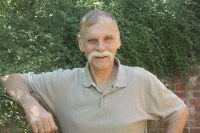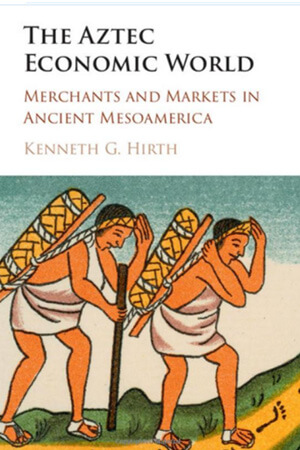
Ken Hirth
The Aztec Triple Alliance established an empire that controlled the Valley of Mexico and conquered many other regions from the 14th century to Spanish contact. Although they are popularly known for warfare and militarism, the Aztec Empire was a strong economic empire, facilitating the movement of goods across vast distances without beasts of burden or formal transportation systems. The Aztecs created a formal market economy where citizens had access to luxury items such as gold and silver as well as more common items like food, clothing, tools and pottery. Ethnohistoric documents and codices suggest a merchant class of Aztec pochteca were responsible for buying, transporting and selling goods for the empire.
 Dr. Kenneth Hirth, professor of anthropology at Pennsylvania State University (Penn State), moves beyond this prevailing view to examine the Aztec economy in greater detail, revealing a more complex picture of diverse merchants and their livelihood. His presentation, “Merchants, Markets, and Commerce in the Aztec World,” will be at 7 p.m. on Monday, April 24, in Cole Hall, room 100. The presentation is free and open to the public.
Dr. Kenneth Hirth, professor of anthropology at Pennsylvania State University (Penn State), moves beyond this prevailing view to examine the Aztec economy in greater detail, revealing a more complex picture of diverse merchants and their livelihood. His presentation, “Merchants, Markets, and Commerce in the Aztec World,” will be at 7 p.m. on Monday, April 24, in Cole Hall, room 100. The presentation is free and open to the public.
Hirth has more than 35 years of active fieldwork in Latin America. He recently directed the Basin of Mexico Geographic Information System (GIS) project, upgrading settlement pattern materials from the region to a GIS platform for reanalysis of prehispanic demographic trends in the Basin of Mexico. He is also engaged in an ongoing study of prehispanic obsidian craft production at the site of Teotihuacan, Mexico, and recently completed similar studies at San Lorenzo, Mexico, and Kaminaljuyu, Guatemala. In his 2016 book, “The Aztec Economic World: Merchants and Markets in Ancient Mesoamerica,” Hirth explores the organization, scale, complexity and integration of Aztec commerce across Mesoamerica at Spanish contact.
This presentation is sponsored by the Graduate School, the Center for Latino and Latin American Studies and the Pick Museum of Anthropology. For more information about this presentation, please call the Pick Museum at 815-753-2520 or visit the museum’s website.
